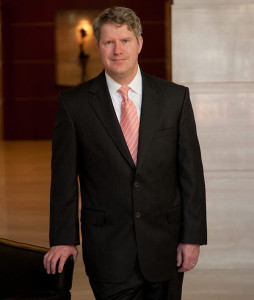This article was first published on HRLaws.com’s Tennessee Employment Law Letter by Butler Snow’s David L. Johnson
In Tennessee, it’s against the law to terminate an employee who blows the whistle in furtherance of public policy. Recently, the Tennessee Court of Appeals upheld a Knoxville jury’s finding that a nurse was unlawfully fired in retaliation for reporting that a patient was being mistreated.
Facts
Latisia Upshaw was a licensed practical nurse for Sunrise Community of Tennessee, Inc., which is paid by the state to provide medical care and services to individuals with developmental disabilities. She was assigned to provide care to “H.G.,” a hospice patient who suffered from gastroesophageal reflux disease. H.G. received tube feedings but was allowed to have occasional “pleasure feedings” of two teaspoons of thin liquids with meals. If overfed, H.G. was at risk of developing aspiration pneumonia.
After encountering evidence that another nurse was overfeeding H.G., Upshaw reported the incident to Cathie Cardwell, Sunrise’s director of nursing. According to Upshaw, Cardwell stated that the other nurse was merely “thinking with her heart.”
After reporting the issue, Upshaw received two disciplinary warnings. First, she was reprimanded for “photographing [an] individual without written consent.” The reprimand was questionable and seemed petty. H.G.’s sister asked Upshaw to take a picture of H.G. with Sunrise staff members, and Sunrise’s HR director questioned whether the reprimand was appropriate in an e-mail. Second, Upshaw was reprimanded for allowing her nursing license to lapse. Unlike with other nurses, Sunrise didn’t warn her that her license needed to be renewed.
On September 4, 2010, Upshaw took H.G. to the emergency room after she vomited up large chunks of food. Upshaw told her supervisor and the emergency room doctor that H.G. had been overfed. Upshaw took H.G. to the hospital again the following week after a similar incident occurred. On September 15, 2010, Upshaw reported that H.G. was being overfed to a state hotline.
Sunrise fired Upshaw on October 21, 2010, claiming that she was lying about H.G. being overfed, had failed to file a timely report with the state, and had prior disciplinary infractions. In the meantime, the state conducted an investigation but couldn’t “determine definitively” whether H.G. was being overfed.
Upshaw sued Sunrise for retaliatory discharge. Sunrise responded that she approached the state with “baseless accusations” because she knew that she was in trouble and was trying to take advantage of having whistleblower status. The employer gave conflicting accounts of whether Upshaw had previously warned management about the suspected overfeedings, first admitting that she had warned management and later denying that she had done so. There were also a number of discrepancies in Sunrise’s document production during the discovery (pretrial fact-finding) process. It repeatedly claimed that it had produced all pertinent documents, only to later find other documents, including important documents that were provided to Upshaw’s counsel only shortly before trial. Upshaw accused Sunrise of hiding documents showing that she had complained.
Following a trial, the jury found that Sunrise broke the law by firing Upshaw for reporting the suspected overfeedings. It awarded her $150,000 in back pay, $75,000 for emotional distress and humiliation, and $200,000 in punitive damages. Sunrise appealed.
Court’s holding
The court of appeals found that the evidence presented during the trial supported the jury’s verdict. First, regardless of whether H.G. was in fact being overfed, Upshaw had to show only that she had a good-faith belief that the patient was being overfed. It was reasonable for the jury to determine that Upshaw genuinely believed that her claim was true. In fact, she made multiple complaints to Sunrise’s management, and when nothing was done, she reported the issue to the state. It was also reasonable for the jury to refuse to believe Sunrise’s explanations for Upshaw’s termination and to determine that the employer terminated her for complaining about H.G.’s care.
The court of appeals also found that there was sufficient evidence to support the jury’s award of punitive damages. To support the punitive damages award, Upshaw had to provide “clear and convincing evidence” that Sunrise acted intentionally, fraudulently, recklessly, or maliciously. The court noted that Upshaw presented evidence that she complained about H.G.’s treatment to management on multiple occasions and Sunrise did nothing. In addition, the inconsistencies in Sunrise’s account regarding what transpired could show that the company acted intentionally. Finally, Sunrise’s failure to provide documents during the discovery process was relevant to the egregiousness of its conduct. Upshaw v. Sunrise Community of Tenn., Inc., 2017 WL 3525368 (Tenn. Ct. App., Aug. 16, 2017).
Bottom line
An employer that fires an employee soon after she makes a complaint like Upshaw’s will really be under the microscope. Sunrise didn’t have a convincing explanation for why it fired Upshaw. The disciplinary infractions leading to her termination seemed contrived. Also, it didn’t help that Sunrise’s story changed over time and that it had problems producing documents during discovery. The employer seemed to want to focus on whether there was truth to Upshaw’s complaints, but it didn’t matter whether H.G. was being overfed so long as Upshaw had a good-faith belief that H.G. was being overfed when she complained. An employer that wishes to fire an employee after she makes a complaint should think long and hard before doing so and ensure that it has all its ducks in a row. Otherwise, it’s inviting a lawsuit, and as this case demonstrates, a lawsuit can lead to a very unhappy ending.
This case also provides a lesson on the importance of taking the discovery process seriously. Sunrise appeared to take a lackadaisical approach to its obligation to produce responsive documents in a timely manner. That drew the trial judge’s ire and ended up embarassing Sunrise in the jury’s presence. I’m sure there are a lot of things the company would do differently if it had the opportunity to go back and do things over again.
David L. Johnson is an attorney in Butler Snow’s Nashville office. He can be reached at david.johnson@butlersnow.com.
